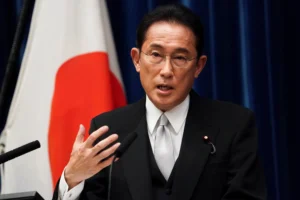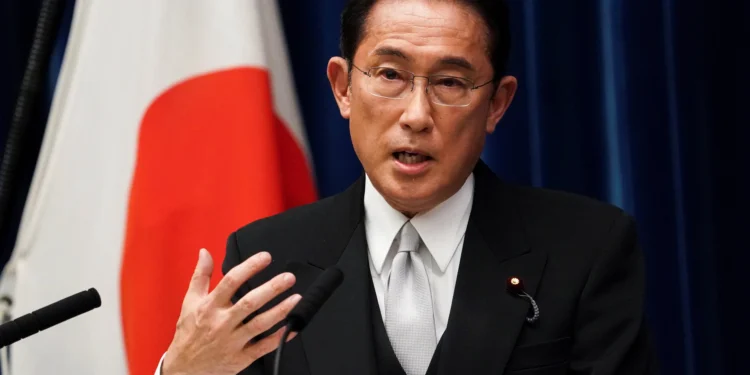
TOKYO, Dec 11 (Reuters) – Japanese Prime Minister Fumio Kishida, facing increasing pressure amidst a fundraising scandal, made a commitment on Monday to rebuild trust in his government. The move comes in response to reports suggesting a potential purge of ministers implicated in the controversy, further exacerbating the challenges faced by Kishida’s administration and its diminishing public support.
The scandal involves allegations that certain lawmakers received substantial unreported funds, marking one of the most significant challenges in decades for the ruling Liberal Democratic Party (LDP). The LDP has been the dominant force in Japanese politics, ruling for most of the nation’s post-war era.The unfolding events underscore the urgency for Kishida to address the crisis and restore public faith in his government. Embattled Japanese Prime Minister Fumio Kishida is grappling with a political storm as a fundraising scandal engulfs his government, leading to record-low approval ratings. A recent poll highlights the public’s disapproval, triggering concerns within the ruling Liberal Democratic Party (LDP). Kishida faces the possibility of a motion of no-confidence from the main opposition party, adding to the mounting pressure. In response to the crisis, Kishida has pledged to restore trust in his government. However, the situation remains critical, with reports suggesting a potential cabinet reshuffle as early as Thursday. The proposed changes could see the replacement of Chief Cabinet Secretary Matsuno, Trade Minister Yasutoshi Nishimura, Internal Affairs Minister Junji Suzuki, Agriculture Minister Ichiro Miyashita, and several other ministerial positions.
The scandal revolves around the LDP’s powerful Seiwa-kai faction, previously led by the late Prime Minister Shinzo Abe. Allegations of concealing hundreds of millions of yen in political funds and kickbacks to lawmakers have triggered a probe by Tokyo prosecutors. The implications are significant, prompting Kishida’s administration to grapple with mounting distrust in politics.
Political analysts suggest that Kishida’s ability to recover from the scandal is diminishing, potentially leading to a leadership contest within the LDP in September 2024. While Kishida is not required to call an election until October 2025, the weakened opposition historically struggles against the LDP’s dominance. The opposition Constitutional Democratic Party is reportedly preparing a motion of no-confidence against Kishida’s cabinet, highlighting internal dissent within the ruling party. Although the motion’s passage is unlikely, it signifies growing discontent and scrutiny within the political landscape. Kishida, who assumed office in October 2021, has witnessed a decline in his cabinet’s approval ratings in recent months, primarily driven by concerns over rising living costs and impending tax hikes. A recent survey revealed a record-low approval rating of 22.5%, intensifying the challenges for the prime minister. As the political turmoil unfolds, Kishida’s administration faces a pivotal moment, navigating a delicate balance between crisis management and restoring public confidence. The evolving situation will shape the political landscape in Japan and determine the future trajectory of leadership within the LDP.










_after_crash_landing-360x180.jpg)

































